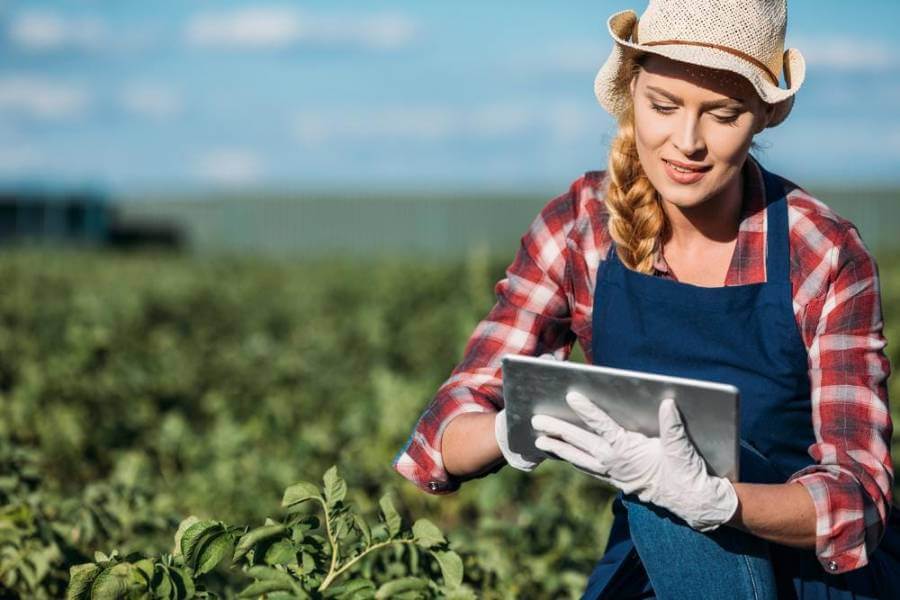
Agricultural Data
Is Agricultural Data The Future For The Food Supply Chain?
Agriculture may not be the kind of industry that most associate with data analytics, but that notion is about to change. As big data becomes more widely accessible for farmers and agribusinesses, the agricultural sector could go through a major transformation. If the experts are to be believed, agricultural data holds the key to the future of the food supply chain. In this article, we share how agricultural data is being used today to support decision making, the potential applications of big data analysis in the future, and how it will revolutionise the agricultural supply chain.
How data analytics is being used in the agriculture sector today
The agriculture sector has been quick to embrace the various data-driven solutions that are available today. Here are some of the best applications of big data analysis in the world of agricultural data today.
Increasing productivity
In an effort to increase yield, farmers and agribusinesses are now leveraging data science and innovation. With the help of soil sensors, weather forecasts and GPS equipped tractors it’s not possible to optimise the operations and discover opportunities to make the most of the available resources.
Reducing wastage and increasing profits
In order to remain profitable, many agribusinesses have developed data analytics strategies that provide them with higher visibility of the supply chain, which in turn lets them make evidence-based decisions regarding pricing.
Getting better at supply chain management
With the help of data analytics, it’s now easier than ever for farmers to know where their products are in the supply chain. By having this information, farmers find it easier to communicate crucial information to the key stakeholders in the supply chain such as the retailers and distributors.
Gain a better understanding of unpredictable environmental factors
There are several unpredictable environmental factors that affect the agribusiness supply chain such as weather and insect behaviours. While it was mostly guesswork to figure out these factors in the past, farmers are now better prepared for such challenges and make use of real-time predictive analytics to make important decisions.
How agricultural data will shape the future of the agricultural supply chain
While there are several avenues of research and countless undiscovered opportunities, here are some of the most crucial applications of data analytics in the agricultural sector that are expected to transform supply chain management.
Using machine learning to improve crop management
Gone are the days when farmers had to rely on fellow workers and farming experts for advice on which crops to grow during which time of the year. In the years to come, farmers will be able to completely avoid failed growing seasons and make use of bioprospecting for the identification of plants they can grow and breed together in order to get higher yields from their fields.
Eliminate inefficiencies in the supply chain
Being able to track the movement of food products from the fields to local markets can help farmers and agribusinesses identify inefficiencies in their respective supply chains. This will not only help them stay one step ahead of the market demands but also deliver their goods in a more cost-effective and timely manner.
Providing insights for making risk assessment
With the help of satellite imagery drones and artificial intelligence, it will become easier for farmers and agribusinesses to make risk assessments based on the insights gained from big data analysis.
Predict drought with the help of artificial intelligence
Not only can artificial intelligence help farmers reduce their water and energy costs significantly, but also provide them with the right kind of insights so that they can better assess the possibility of drought and make preparations for it well in advance.
Make urban farming more accessible
Thanks to big data analysis and IoT, more and more farmers will be able to adopt urban farming and maximise their yield and profits at the same time, while also feeding the growing population. According to some estimates, it will help them produce up to 180 million metric tons of raw food products annually, which will be a major boost for the agriculture sector.
Make livestock management easier
With the help of advanced sensors, livestock farmers will soon become better at monitoring the fertility and milk production capacity of their livestock. Apart from this, it will also become easier for them to track and prevent illnesses from spreading in a herd of cattle.
Final thoughts
Considering that agriculture has always benefited from innovation and technological advancements in the past, it won’t be wrong to say that big data analytics would ensure a bright future for agribusinesses. As the global population continues to grow and food supplies remain impacted by climate change, everyone in the agriculture supply chain will be able to better utilise the available technology and overcome the challenges that the future holds for the agriculture sector.

Founder Dinis Guarda
IntelligentHQ Your New Business Network.
IntelligentHQ is a Business network and an expert source for finance, capital markets and intelligence for thousands of global business professionals, startups, and companies.
We exist at the point of intersection between technology, social media, finance and innovation.
IntelligentHQ leverages innovation and scale of social digital technology, analytics, news, and distribution to create an unparalleled, full digital medium and social business networks spectrum.
IntelligentHQ is working hard, to become a trusted, and indispensable source of business news and analytics, within financial services and its associated supply chains and ecosystems



























